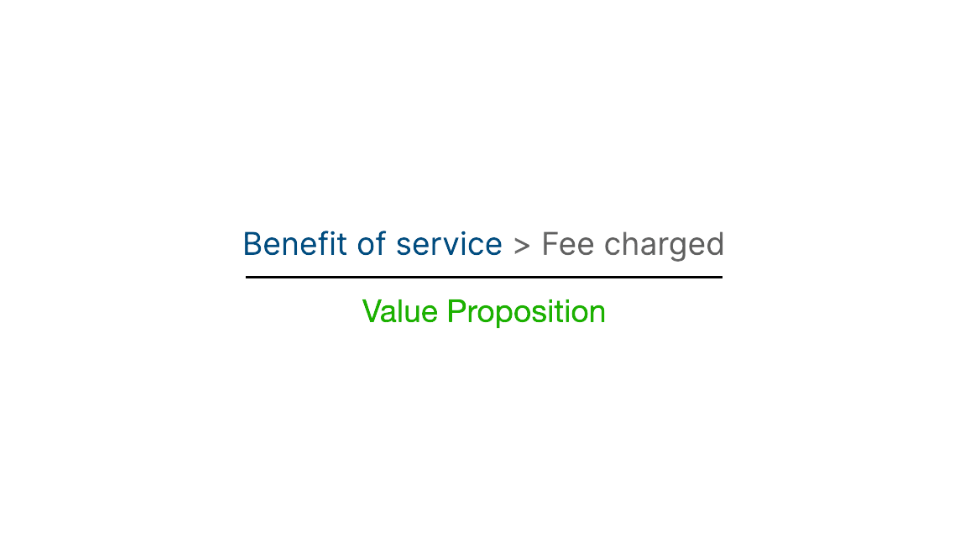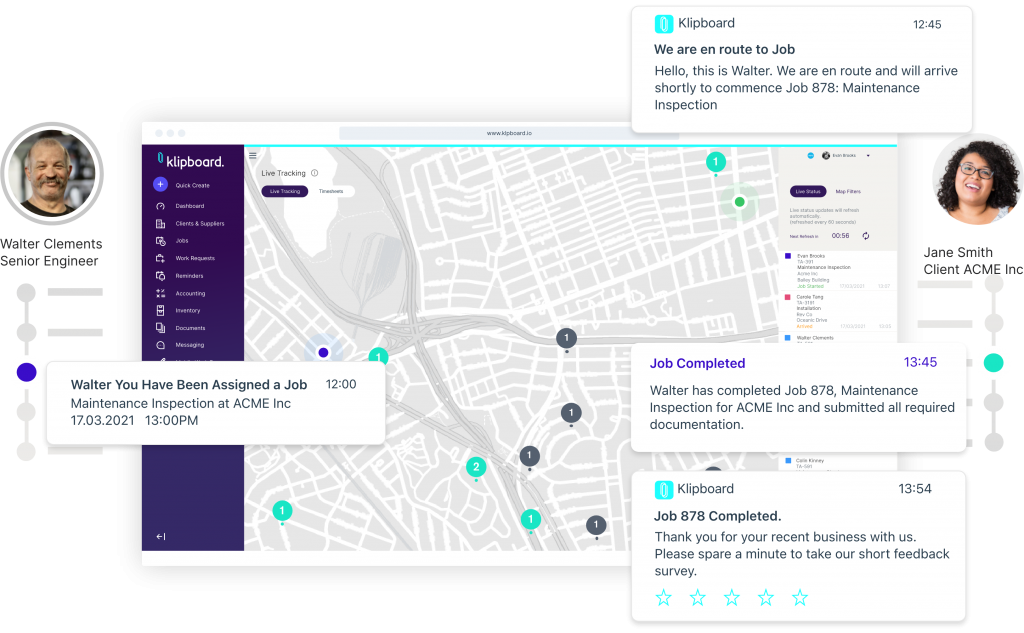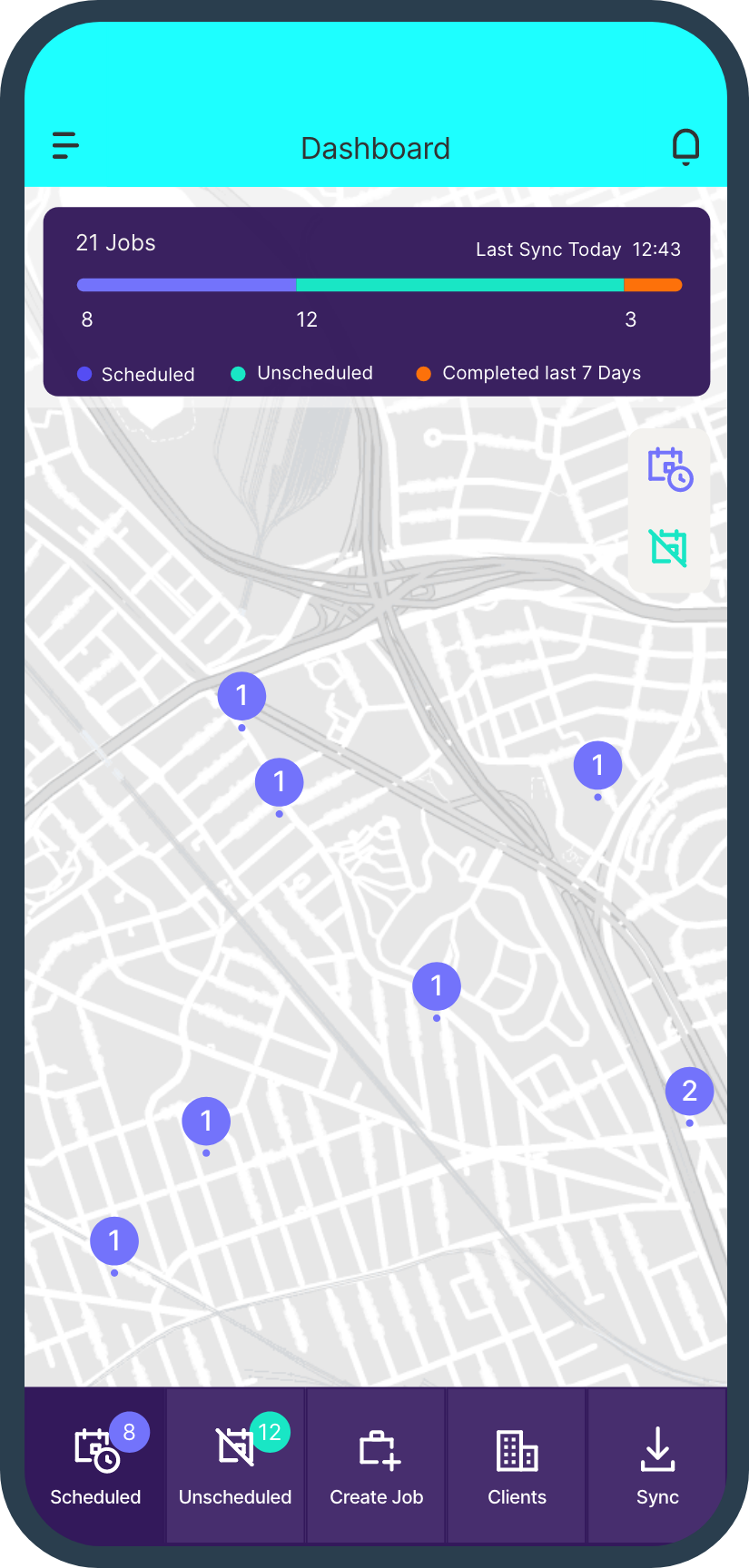Growth is achievable but can be painful. It pushes your business to do more with less and that’s why a lot of field service businesses reach a point where their ambition exceeds their ability to scale up.
Field Service is a highly competitive market. It’s important that if your aim is to scale your Field Service business, you don’t repeat the mistakes of others who were held back by certain actions or decisions.
Why scaling your Field Service business is challenging
To grow a Field Service business you need to increase revenue. There are three main ways to increase revenue and all require you to maintain a high level of customer satisfaction and trust you’ve got the right team behind you to make it happen:
- Increase the number of customers you service
- Increase how much those customers pay for your service
- Become a more cost efficient operation

How not to scale your Field Service Business
Operating a success Field Service business requires you to adjust your service to the demands of your customer and be ready to respond when they need you.
To scale your business you’ll need to increase profits while keeping your team motivated, appreciated and not burdened with extra pressure and stress. Here are some of the more common mistakes to avoid when trying to scale your Field Service business. Let’s dive in.
1. Wanting too much too soon
Many entrepreneurs and business owners are highly motivated, ambitious, clever cookies who want everything yesterday.
Their desire for success and to enjoy the fruits of team’s labours is what pushes them forward, but they often expect too much too soon.
More often than not what stops growth is asking for more without offering more. Trying to earn more profit on the what is basically the same service offered previously will only create resentment from your customers.
Business owners need to leverage the improvements to their service to increase fees and profits.
The utilities industry regularly struggles with the problem of customer resentment, churn and price sensitivity.
As a customer you believe the gas or water you receive hasn’t changed and should be the same price, however it’s not always as black and white as that. Businesses have to ensure their customers feel they are getting value from their service, they understand the improvements that have been made and justify the fee.
Customers know how much they are willing to pay for the service you offer – this is known as your Value Proposition.
What to do about it:
To grow you’ll need to increase the value proposition of your service and then reduce the cost of delivering that service.
If you search online you can find lot’s of fancy ways of explaining the importance of leveraging the perceived value of your service against market rates.
At Klipboard we like to keep things simple. There’s no simpler way of explaining it than this:

The benefit of what you offer has to be worth more than what you charge for that service. If you increase one side without the other than the perceived value of the service changes.
To grow and increase your profits you need to continue to improve your value proposition allowing you to charge a greater fee while reducing the cost of delivery. Incorporating efficiencies within your business and reducing wasted time on admin and duplication of tasks will go a long way to achieving this goal.

Without finding cost effective ways of delivering your service you’ll simply scale your costs up with your fees and it will feel like you’re busier but you’re no more profitable than before you tried to scale your field service business.
Look at areas of your business that produces waste. Lost hours, complicated processes and miscommunication. Time is money and if you can reduce wasted time you can reduce the cost of delivery.
This takes time, it will involve reviewing all aspects of your business and gradually improving the features and benefits of your service, increasing the value proposition allowing you to charge more. While at the same time you need to look for ways of reducing the cost in time, money, and resources of delivering that service.
2. Forgetting to make sure the important things happen
All successful businesses have the same thing in common. They make sure the important things happen.
A business owner or team leader you shouldn’t get stuck into the day-to-day and lose sight of the real value they offer the business. They generate opportunities through ideas, consider improvements or new markets and find ways to innovate – these are the important things if you want to scale your Field Service business.
You’re trying to be helpful and hands on, so you’re in every meeting. You’re sharing your wealth of experience and you’re trying to make sure everyone is empowered, supported and pulling in the same direction.
While that’s commendable and it might help motivate a few of your team to get more out of their day, it’s not going to help you grow your business.
What to do about it:
To scale your Field Service business you will need to get away from the day to day tasks and focus on the bigger picture.
Try to allocate a period within the first few hours of each that’s set aside of the activities that will help you grow your business. According to a study of work and time management by an NPR study, most engineering businesses condense their activities more than nearly every other job sector and these tasks take place between two peaks, one in the morning and the other in afternoon.

Source: NPR study of Work and Activity for Engineering roles
Knowing when you might get a window of opportunity to consider the things you could be doing to push your business forward will help you. Many business owners use this time as an opportunity to call some of their customers to find out how they are doing? What’s happening in their business? What challenges are your customers facing?
This will highlight not just the value of the service you’re presently offering but could inspire you to come up with a solution to a problem you didn’t know your customer was facing.

3. Doing more of a broken process
Scaling effectively means doing more.
That means speaking to more potential customers, it means handling more requests from your current customers, it means processing more quotes and invoices.
If scaling your Field Service business means doing more of a process that isn’t efficient and causes issues for other departments or even your customers, that will simply mean doing more of a broken process.
What to do about it:
Before you embark on a plan to scale your Field Service business you need to review how you currently work.
Map it out. Go from how you market your business to how you invoice for a completed job and all the steps in-between. You’re about to do a lot more of these tasks so they have to be correct.
You’re going to find things change as you grow. Some processes that work perfectly fine today might be infeasible with more people, more customers and more complications, but starting on the right foot will allow you to adjust to change.
- Look for bottlenecks
- Spot duplication of tasks
- Identify where mistakes are being made
This exercise will give you a chance to see where time can be saved in your business. Hours spent on admin and repeating tasks will hinder growth and hold you back from either spending more time with your current customers or stop you from finding the next customer.
4. Racing to the bottom on price
Competitive pricing is a great way to win a customer in the short term and will put your business at risk in the long term.
As you start to pick up more customers it will be tempting to offer deals and reduce prices to secure contracts from larger companies. Lowering your prices to win business from your competitors is referred to as a ‘Race to the bottom’, it will harm your ability to turn a profit and reduce the perceived value of your service.
Lowering prices devalues your service. The lower your prices the lower the expectation on your service and your reputation.
Low cost Airlines are one of the few instances where businesses are still able to remain (relatively) profitable while offering their service at the lowest possible cost. However, these are rare and even Billionaire Investor Warren Buffet has been burnt twice by investing in airlines. Low cost airline’s profit margins are very narrow and the risks are high. They only manage to sustain profitability because what they offer is quite rare and the barrier to entry of setting up an airline is so steep.
Almost every other service led industry has the focus on quality and scaling up in a smart and measured way by gradually increasingly prices while added extra value to their proposition.

What to do instead:
You know what you’re worth. Or more importantly, your customers know what you’re worth.
If you find you can only win business by reducing prices then either what you’re currently offering isn’t worth the higher fee you’re asking for it or the marketing of your services to new customers isn’t representing your value.
Hold firm with your pricing strategy. Compare your offering to your competitors and make this an exercise that you do with your sales, marketing and engineering teams.
Ensure any feedback of the service is shared within your team and focus on improving areas of concern. Don’t be afraid to change your message as a company and use your marketing channels to amplify this to more customers.
Consider the perception of your brand to your customers get when they get a quote or invoice from you.
Would you be impressed?
Do you use a software system that allows you to create professional looking branded quotes for your jobs?
Your whole company should understand your value proposition. If they do, it will shine through with every interaction with your customers.

5. Being Reactive rather than Proactive
Engineers make excellent problem solvers which also means they are brilliant in reactive situations. Their ability to analyse a situation and offer solutions has made them great at their job and a real asset to any Field Service business.
Department Mangers and Business owners shouldn’t be working reactively. Instead of fire fighting they need to be focused on big picture activities and create plans to make sure the team can cope the next time the unexpected happens.
If you find you’re on the front line every time there’s a situation that requires a fast response than you’ll struggle to scale your field service business.
Instead try planning rather than fixing:
Proactive thinking is all about understanding what’s happening within a business and what potential issues can arise. Thinking about these ahead of time will allow your team to quickly bounce back, allowing service to continue and revenue to be maintained.
You haven’t got a crystal ball. It’s unlikely you’ll ever be able to predict all instances that can arise, but you should have an idea of the key risks to your field service business.
- A flood in the the warehouse
- No available vans or transport
- Bouts of illness in small teams
- Inability to secure parts and inventory
- Health and safety incidents
Your ability to create a contingency plan for unplanned events will help you drive your business forward. Here’s three things you can do to help you build a frame work around your business to ensure your team can handle any situation:
- Build a team you can trust.
You need to be sure that when a situation arises that requires your team to react they can handle it. A competent and confident team will ensure you can focus on the activities that will scale your field service business.
- Look for patterns.
Why do these situations occur that make you drop what you are doing? By monitoring the activities that cause your team to drop what they are doing or hold up completing jobs you’ll be able to avoid them.
- Allow your team to learn.
Even if you’re the business owner and the best person to solve the problem, should you? By allowing your team to try to fix an issue you’re enabling them to grow and become better more rounded team members.
6. Failing to address inefficiencies
Inefficiencies are a drain on resources.
To scale your field service business you’ll need to complete more jobs. To have the time available to do that you’ll need to make sure your operation isn’t wasting needless time on admin or duplicating tasks.
If the goal is to grow then you’re going to need a better way to schedule jobs, manage your team’s workload and speed up your cash flow. It’s common for Field Service businesses to spend a lot of their time handling admin tasks, phone calls, emails and duplicating data entry for reports or field service finances.
There’s a better way:
Field Service Management Software offers a way of streamlining operations and empowers your team to complete more jobs. It addresses some of the key inefficiencies found within Field Service business that are unable to scale.

Reduce no shows
With better job scheduling and improved communication with the customer you can reduce the number of times you miss a job or your engineer travels miles to a customer who isn’t there. For more on tips on reducing no-shows check out our guide. Learn more.
Quotes and Invoice reconciliation
Linking your Field Service finances to your Job Management Software through a single platform will make life a lot easier for your finance team and your customer. By simplifying this process you can speed up how long it takes to get paid for a job well done.
Gather more on go
Your engineers probably take more work home with them than you realise. They might spend all day on a customer’s site only to take the reporting admin home with them too. Data collected on mobile forms completed on a Field Service Management App can be quickly turned into a report saving hours every week and greatly improves their work life balance.
No more missing paperwork
Paperwork is a headache for field service businesses. It’s an unavoidable necessity especially when it comes to meeting compliance regulations. Going paperless with digital mobile forms will keep everything stored in the cloud, no more missing paperwork or wasted time.

7. Not changing your structure as you grow
The same structure that made you successful when you were a team of ten in the office and in the field, is going to change and if you want to scale your field service business you going to have to make some bold decisions.
Your current structure might not be fit for purpose with more customers.
What to do about it:
Your leadership team will need to be ready to adapt. If you do plan on making some big changes to the structure of your teams you’ll need to be mindful of two things:
- You need to do this
- Your team might now understand why you need to do this!
To scale your Field Service Business you’re going to need to take some risks and changing your structure will be one of them. Most people have an aversion to change and will fear the worst that’s why it’s very important to be lear about your intentions as early as possible. They will look to you for reassurances that you’re doing this with their interests in mind and they have a place in your wider business plan.
Making changes to something that’s successful will challenge you on many levels. It will challenge your nerve to make the changes and it will demand the best out of your people management skills to keep everyone onboard.
Conclusion
Scaling your Field Service business is the only way to build a bigger, more successful and profitable business but it will test you and your team on many levels.
You’ll need to review how you current work, the efficiency of the processes you currently have and give your team the resources to improve upon what they do day to day. Ultimately you’ll never grow if you make the mistakes mentioned above.
Getting growth right begins and ends with how your customers value your service – get that right and everything else will fall into place with good communication, hard work and a little luck.

